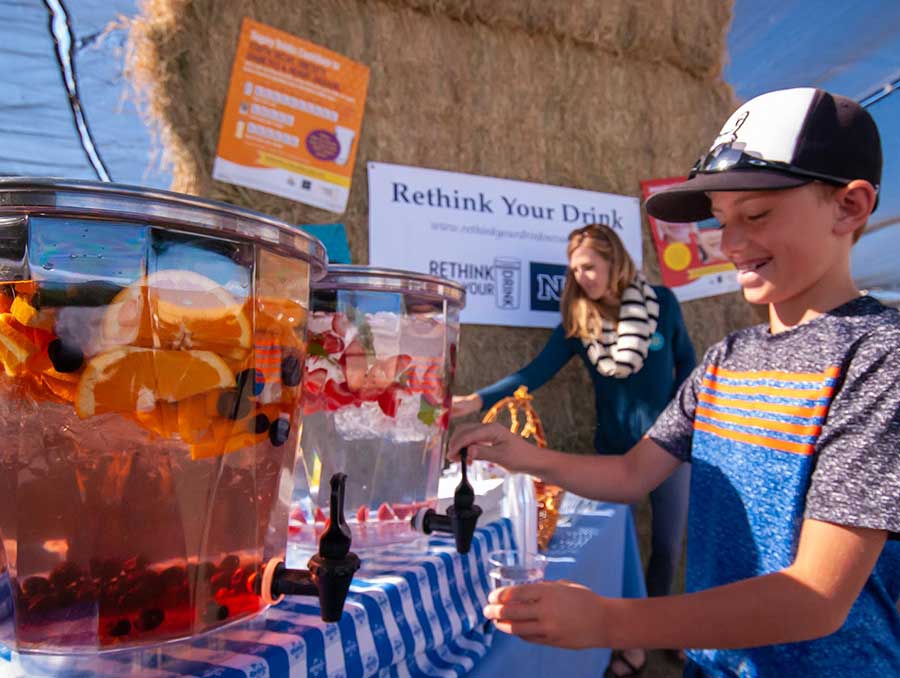As summer approaches, kids may be spending more time outdoors and playing sports. Sometimes kids don’t recognize when they need more fluids until they start feeling poorly. Keep reading to learn how to help your kids stay hydrated and feeling their best when they are on the move.
The amount of water a child needs is based on their age, weight, level of activity and temperature. Kids need more water when it’s hot outside and when they are active. Keeping kids hydrated can be easy:
- Offer them tap water often. It’s convenient, inexpensive and refreshing.
- Serve tap water ice cold. Keep a pitcher of water in your refrigerator.
- Make healthy drinks that your family will love. Try our easy recipes.
- Carry a reusable water bottle. Remind kids to take water breaks.
- Offer kids plenty of fruits and vegetables. These are a hydrating, refreshing snack.
Most kids can get the recommended amounts of water and electrolytes by drinking fluids often and eating a wide variety of foods from each food group. Sports drinks are sugary drinks and are rarely necessary.
The best way to tell if your child is adequately hydrated is if they are taking regular bathroom breaks. Their urine should be a light straw color. Dark urine, the color of apple juice, is a sign of dehydration. Other signs of dehydration include headache, poor concentration, dry mouth, flushed skin, constipation and tiredness. If the dehydration is severe, kids may experience cramps, lightheadedness and a rapid pulse. Don’t hesitate to call your pediatrician if you are concerned about your child being dehydrated.
This article was written and reviewed by Rethink Your Drink Nevada’s team of dietetic professionals. To learn more about making healthier drink choices, subscribe to the program's newsletter, the Insider. To suggest a newsletter topic, write to RethinkYourDrinkNevada@unr.edu, and receive a free, healthy drink recipe book.
Brandy Kuebler, R.D.N., L.D., is a research associate with Rethink Your Drink, a program offered by the College of Agriculture, Biotechnology & Natural Resources' Department of Nutrition in collaboration with Extension.
The program is funded by USDA’s Supplemental Nutrition Assistance Program — SNAP. SNAP provides nutrition assistance to people with low income. It can help you buy nutritious foods for a better diet. To find out more, contact 800-992-0900.

















